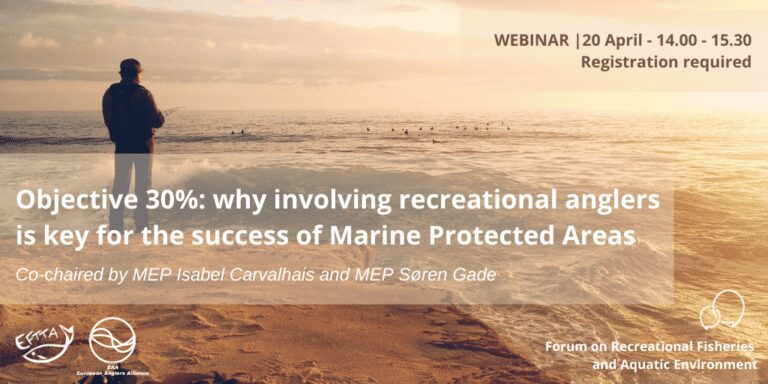In May 2020, the European Commission presented its ambitious Biodiversity Strategy for 2030. In order to restore ecosystems across European seas, the Commission sets two objectives: legally protecting a minimum of 30% of the EU’s sea area, and strictly protecting at least a third of the EU’s protected areas (ie 10% of the sea).
However, existing Marine Protected Areas (MPAs) often lack the proper management and the continuous control and enforcement of conservation rules that are key for their success. The lack of funds and of involvement of national, regional or local authorities and stakeholders, also means that some of those MPAs are protected on paper only. All those challenges will not go away and will need to be addressed in order to protect effectively and efficiently the 30% of the sea needed to reach the Commission’s objectives. This also means that without an appropriate answer to these challenges, the environmental, social and economic benefits for coastal communities promised by the Commission will be limited.
As sometimes the only eyes and ears in MPAs, recreational anglers are taking a keen interest in this issue. Given that the angling experience relies on healthy fish stocks, they welcomed the Biodiversity Strategy for 2030 and intend to support and contribute to the success of MPAs in Europe.
The conference will look at the current state of play of MPAs in Europe and identify some of the keys for their success, building on the recreational fisheries sector’s experience and perspective. This will also give the opportunity to try and find the answers to some of the questions these ambitious targets raise amongst stakeholders and decision-makers. Beyond the quantitative target, the level of ambition also makes some recurring questions more acute: not all activities should be allowed in marine protected and strictly protected areas, but what should be the criteria to decide which activity to ban? On which basis should the management plans be developed, and which stakeholders should be involved? What should be the objectives of MPAs and how can their success be assessed in the mid- and long-term?
More information about the event here

